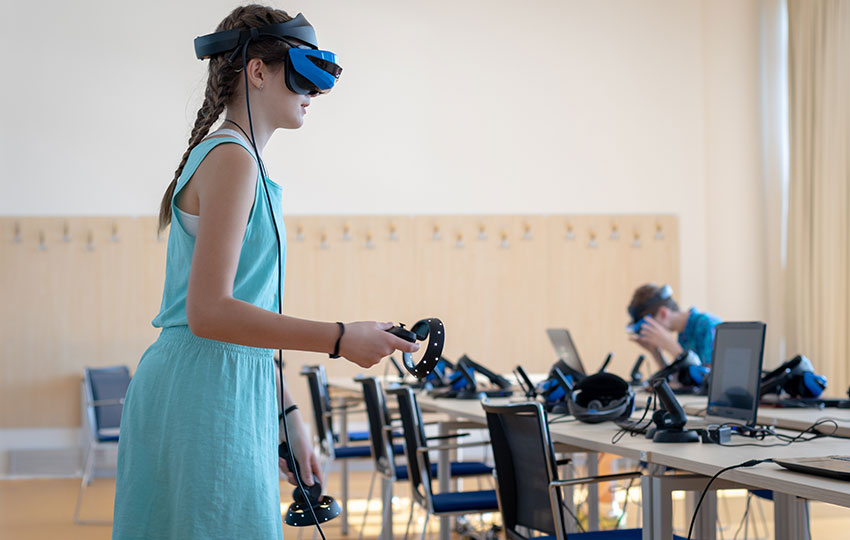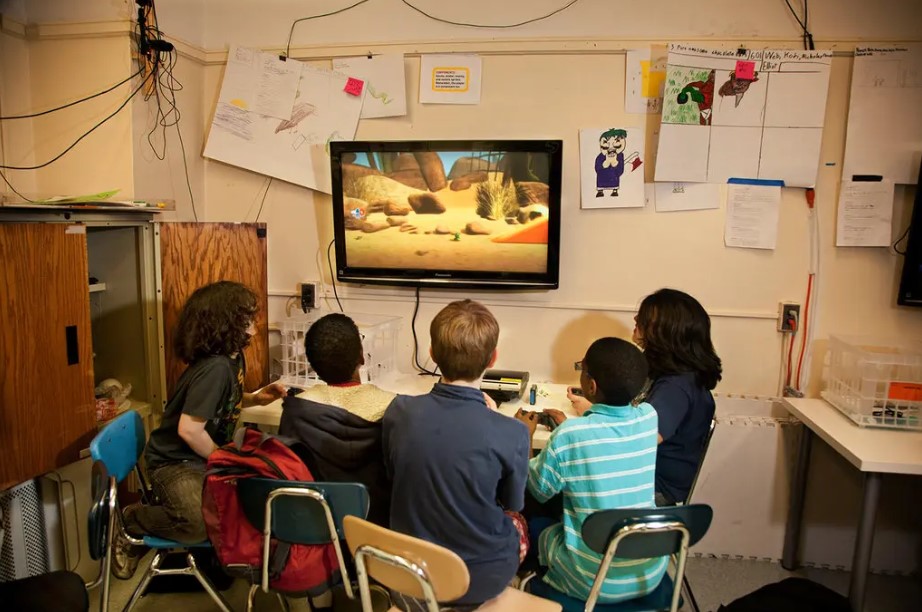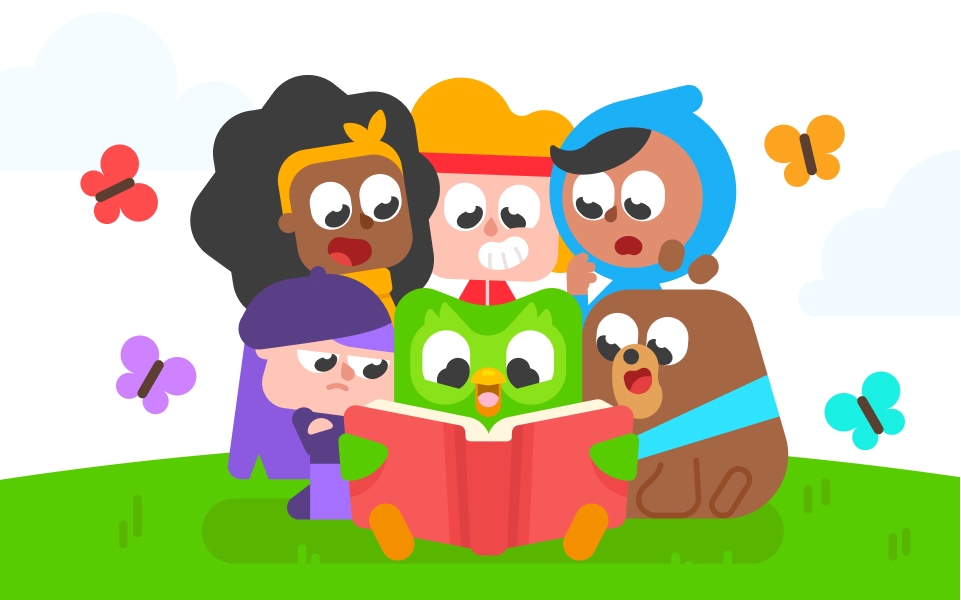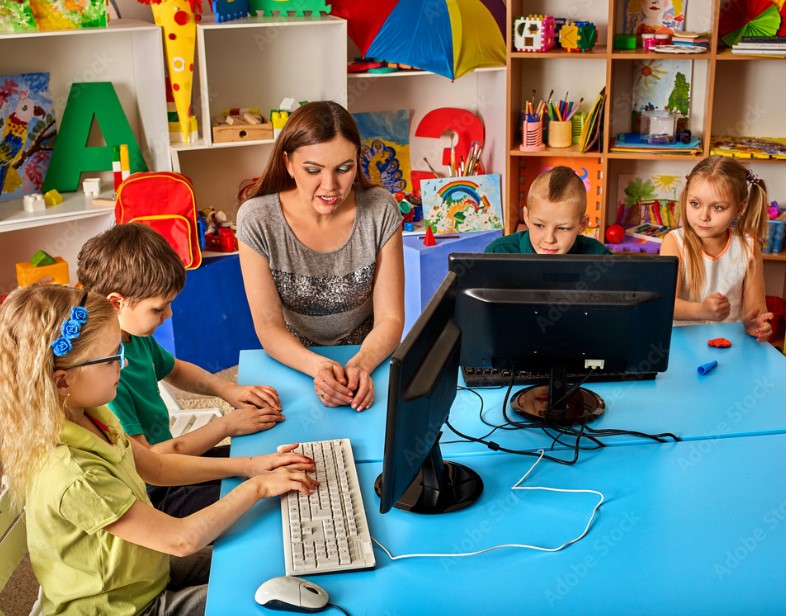You might have heard some not-so-good things about video games in the news. People often talk about how they can be bad for kids because they might see too much violence or get addicted to them, making them less social. But there’s another side to the story: video games can actually help students learn if used properly.
Even though the worries are real, not many people talk about the good stuff that video games can do for education. Some teachers are doing cool things with video games in the classroom to make learning more fun. So, if you want to boost your child’s learning, think about getting them a tutor to help at home instead of worrying too much.
How Society Benefited from Video Games
The video game world isn’t innocent anymore. It’s grown up a lot and people respect it for its cool technology, creative ideas, and smart business thinking. Let’s look at some numbers: In 2022, the whole video game business made more than $180 billion, and experts think it will go past $200 billion by 2025. That’s a lot of money!
With such big numbers, it’s no surprise that video games are super popular. They’re even more popular than music and movies. Hollywood can’t compete with this. There are 3.2 billion people all over the world playing video games. Games like Fortnite are a big hit, with over 230 million people playing every month. It’s so popular that even big companies like Netflix are feeling the heat from it, more than Disney and HBO, who are also in the business of streaming shows and movies.
Video Gaming in the Classroom
You can use games to think about big ideas, like philosophy. Some games are not about competing against others but working together to solve problems. Good games make a child think creatively and learn how choices they make can have results. In history class, games like Civilization VI lets kids learn about how empires grew and different times in history in a fun way, way better than just reading a boring textbook. And in Minecraft, they can see scientific elements in action, which makes it easier to understand.

Exercising Game-Based Learning
You can see how video games are helping in education through “game-based learning,” and it’s a cool way to teach stuff. Here are three things about it:
- Learning becomes fun: It turns boring lessons into exciting games. A child can learn stuff without even realizing it.
- Keeps kids excited: Your child is the star of the game, and when they do well, they get rewards like medals or extra lives. This makes them want to keep learning.
- Practice without risk: Children can use what they have learned without any danger. For example, flight simulators let them practice flying without any real risk.
Additional Benefits of Gaming for Students
Children can benefit from gaming in several ways:
- Sparks Interest: If your child is not too excited about school stuff, gaming can help. Even if they’re not great in academics, they can still become an expert in the game and teach others.
- Confident Communication: Video games let a child talk and work with their classmates in different ways. This is really good for shy students who might not like talking in class.
- Teamwork: When they play games with others, children will have to work together, which is like teamwork. This helps them learn how to cooperate and be part of a team, which is useful in real life too.
- Problem solving: Games force the player to make choices, so your kid get better at making decisions and thinking hard about things.
- Being Safe Online: Gaming in class can help children learn about things like violence and graphic stuff in games. It teaches students how to think carefully about what they see and play online.

Video Games Designed for Learning
These serious games are made to teach children different topics. Some help students learn subjects like languages, and others train professionals like police officers, pilots, firefighters, or healthcare workers.
These educational games are getting really popular, and in the United States, they’re expected to be worth a whopping $24 billion by 2024. That’s a huge increase from 2021!
Here are some of these games:
- Dragon Box: It’s for little kids to learn about shapes and geometry.
- Blood Typing: Made by the Swedish Academy, this game teaches kids about blood types and transfusions.
- Duolingo: Duolingo is great for learning languages like English, French, and German.
- Spore: If a child wants to understand how living things change and evolve, this game is for them.
- Extreme Event: This one teaches students how to handle natural disasters and work as a team.
- Pacific: It helps children learn about being a leader and managing a team.

Let Kids Have Fun with Educational Video Games is the Best Way to Adapt
You can see that computer games have some great advantages in education. They make learning fun, help kids become better at solving problems, and let their imagination run wild.
They can also learn at their own pace, even from far away, and connect with students all over the world. Nowadays, technology is a big part of schools, so it’s important for teachers to think about how computer games can make learning better. When they use games in their teaching, it makes learning more interesting and helps children learn better.




